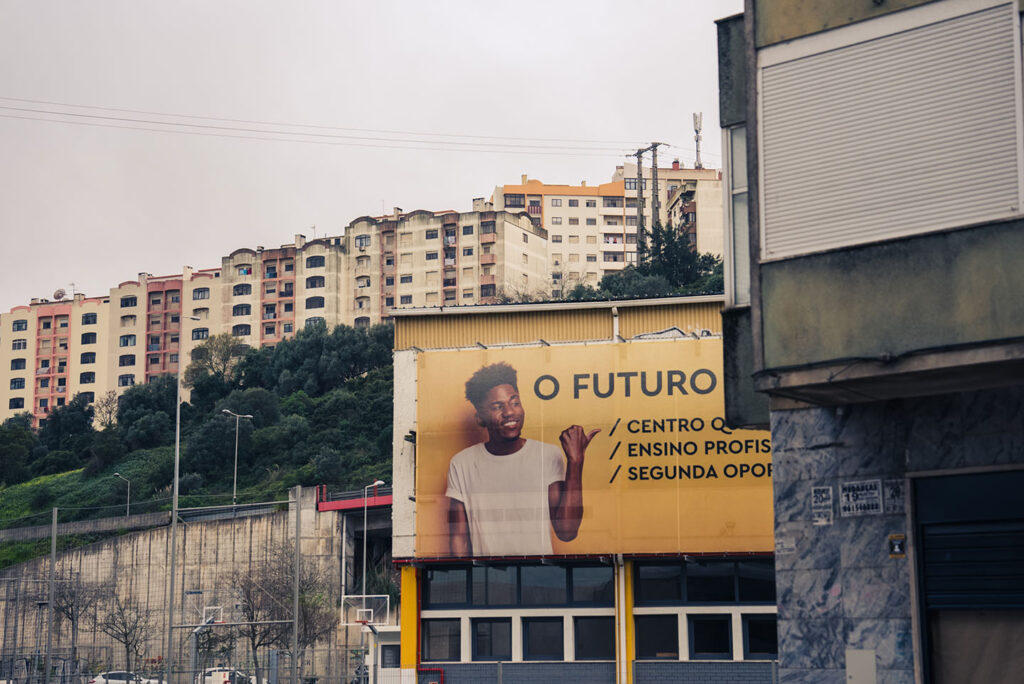

Backstage


Could abstention be somehow linked to the expansion of populist parties?
Miguel Carvalho, a journalist who has devoted his time to investigating the rise of populisms in Portugal, reflects on these two phenomena and the impact they are having on democracy.
THE OPEN VEINS OF DEMOCRACY
Miguel Carvalho/DIVERGENTE
It was at the bleeding of dreams and social rights that the door to abstention opened.
It is by tapping into resentments and prejudices that some people bleed democracy for their own electoral gain. The Uruguayan Eduardo Galeano wrote about these open veins—and others—in people’s aspirations. And it is in paraphrasing him that this is best explained: unable to multiply loaves, the empires of yesterday and regimes of today sought to cut the number of seats at the table. Galeano could not have guessed, but the geography of resentment that the populism of today feeds on was written.
In Portugal, first the Constitution was reined in. Despite its rich collection of social rights, “unique in Europe”, the founding text of democracy fell victim to a “legal counterrevolution” that smoothed the path for the economic oligarchy to return, threw open the gates to neoliberalism and tamed the “transformative” nature of the law of laws, according to a recent study by constitutional expert Teresa Violante.
It is well known: the future is best observed through the rear-view mirror.
But many were left watching the trains go by. And it’s not just a metaphor. For decades, the State has closed and dismantled trainlines and stations, sometimes in the dead of night. The vaunted “cost/benefit” fragmented communities, abandoned populations, extinguished jobs, small businesses and, as they now say, “discontinued” services.
Between 1985 and 1995 the conservative government of Aníbal Cavaco Silva linked the coast to the interior with the concrete highway, believing investment would follow. Motorways may have been the most impressive no-return investment ever, but blow me down, they go both ways. This apparently didn’t occur to the experts (a specialism of theirs when merging parishes). The “desert” continued to advance until it reached the coast. The coast, of course, didn’t move an inch. It stayed where it was, where it still is, squeezed to fit into a parched existence.
This was “progress”, remember? And it never stopped.

In this invisible country, they have closed the doors one by one on this map of discontentment. Too often, the spotlight only appears in search of the excitement of tragedy, health services have been reduced, institutions broken up, the elderly isolated. Distances have increased, and not just physically. Schools are closed, jobs, expectations and transport are scarce. Work has become more precarious; baby boomers have emigrated. The old are dying. The young box up their futures. Let the poor get on with it, pin their hopes on a scratch card. Disenchantment and disillusionment with local and national politics have turned from abstention to anger. How much is that worth in votes?
Populism didn’t stand idly by.
First, the municipalities in the districts where Chega obtained the best results to elect 12 representatives in the 2022 legislative elections are characterized by a lower purchasing power than the national average. The electoral impact of the amputations suffered in the region (post offices, education, health, bank branches, etc.) remains to be seen. However, the authors of the Portuguese chapter of the book, Las Nuevas Extremas Derechas en el Mundo [The New Extreme Rights in the World] (Tirant Editorial, 2023) argue that the party’s establishment and rise is in large part due to the decline in voter loyalty to traditional political forces, high abstention rates and to the lack of serious responses to sensitive issues (immigration, corruption, and public order). The book also includes a chapter from political scientists Aleksandro Palomo and Jürgen Haberleithner, who describe the Alternative for Germany (AfD) nationalists and how they successfully mobilized many abstentionists unsatisfied with the political system.
If you don’t like tomes of nearly 600 pages, you’re missing out.
But there’s another way to interpret the fertile ground of abstentionism and the racist and xenophobic narratives riding the wave of political disrepute, structural unemployment, economic and health crises, and the collapse of the rural and industrial worlds. Just listen to landlord T. J. Balentine, the central figure in Ken Loach’s The Old Oak Pub. Yes, it’s always easier to take a swing at those lower down the social ladder—gypsies, immigrants, or refugees—while the real culprits are out of reach, way above us, enjoying the struggle for survival in the everyday arena. Could oppression be more refined?
Tick-tock, tick-tock
Yes, the time bomb is there. And it’s not from Mars.

The radical or extremist right didn’t even need to infiltrate professional sectors key to “anti-system” protests or the weaker social classes. All they had to do was offer a simple, effective, viral narrative. From the pub to academia, from the police station to the school, from the hospitals to the fields, from the council estate to the mansion, bankrupt or thriving.
Chega has become a magnet for resentment, a refuge for those left in democracy’s wake: the excluded, persecuted, violated and frustrated, opportunists or not. But is this creature’s electoral base just a flock of “fascists” as they are called from the political trenches? Or does this constitute undesirable and risky stigmatization that denies democracy itself the possibility of redeeming itself by redeeming them?
In “the Spanish inn”, the populist radical right is home to legions of cronies who have never voted, former members, political activists and mayors from all shades of right and left, and even dozens of supporters with a union background. The extremes “live” there: millionaires interested in financing those who best serve their caste, but also a ream of precarious workers for whom their “failures” in knowledge or cultural aptitude tests for public jobs are explained in one way— whatever Ventura sells to them. This is not, of course, about the holes in their CVs, their lives or their country, but about scapegoats for immigration and subsidies, the “rotten” regime’s conspiracies and schemes to deny them a decent job like they deserve.
And here’s the irony: in the upcoming elections, an increase in voter turnout could end up in the lap of a reinforced cyber-populist radical right, which attacks professional mediation of information and reduces journalistic scrutiny to scorched earth.
The tick tock lurks in the fog of disinformation, inflated by the algorithm of fashions, uncertainties, disappointments and accumulated anger. In 2024, the thirst for waiting, now laden with despair and resentment, threatens to sweep democracy away. Reset?

PROJECT TEAM
Information Architecture
Beatriz Walviesse Dias
Diogo Cardoso
Luciana Maruta
Ricardo Venâncio Lopes
Sofia da Palma Rodrigues
Interviews and text
Beatriz Walviesse Dias
Luciana Maruta
Sofia da Palma Rodrigues
Photography and image editing
Diogo Cardoso
Ricardo Venâncio Lopes
Design
Diogo Cardoso
Data selection and review
Beatriz Walviesse Dias
Luciana Maruta
Sofia da Palma Rodrigues
Editing
Sofia da Palma Rodrigues
Portuguese proofreading
Alda Rocha
English translation
Sandra Young
English proofreading
Felicity Pearce
Web development
Manuel Almeida
Coordination
Diogo Cardoso
Luciana Maruta
Production
Ana Pereira
Media
Beatriz Walviesse Dias
Financing
Civitates
Display Europe Project
Support
Azores Easy Rent
Câmara Municipal de Borba
Câmara Municipal de
Melgaço
Friedrich-Ebert-Stiftung
Junta de Freguesia de
Quarteira
PUBLICATION DATE
30 April 2024

“Funded by the European Union. Views and opinions expressed are however those of the author(s) only and do not necessarily reflect those of the European Union or the Directorate‑General for Communications Networks, Content and Technology. Neither the European Union nor the granting authority can be held responsible for them.”





